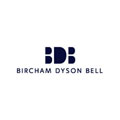The quality of client relationships is often cited as the most important aspect of running an organisation. The vast majority of encounters with clients run smoothly; however, from time to time, you may be faced with a difficult situation. From poor communication and contract disagreements, to clients frequently moving the goal posts, maintaining a positive business relationship when disagreements occur can be a challenging hurdle to overcome.
A crucial first step to handling difficult clients comes from setting clear expectations that prevent these disagreements from arising in the first place. With repeat business and your firm’s reputation on the line, understanding and communicating with your client from the outset can prevent potential disputes damaging your bottom line.
Here are 8 top tips to help you create a rewarding, lasting and headache-free client relationship.
- Lay the Groundwork. Your customer’s needs are at the centre of any successful business relationship, so it is vital to understand their business practices and what they want out of this partnership.
- Know how the client likes to do business. Is there a particular way they like information presented? Do they prefer regular contact? How much involvement do they want in the process?
- Communicate how your firm does business. How much you charge and who will be performing the work. Don’t over-promise and under-deliver. Be up-front and honest about what you can and will achieve for your clients.
- After the above has been established, send a confirmation letter outlining the key points to your new working relationship.
- All relationships need nurturing. Email communication can often be misconstrued, especially during stressful situations, so conduct face to face meetings or telephone conversations to avoid important messages being misread.
- Avoid giving the client any nasty surprises. Keep clients in the loop on developments affecting projects. Follow-up conversations with an update email summarising the key points and course of action.
- Get to know your clients personally. Establish a sustained connection that makes clients feel ‘cared for’. Connect through common interests like, family, hobbies and backgrounds. Forming a personal connection with your clients can help strengthen the future working relationship.
- It’s important to ask for client feedback after reaching milestones in projects. You can take a formal approach by using a client satisfaction survey, or ask them informally during a conversation.
















